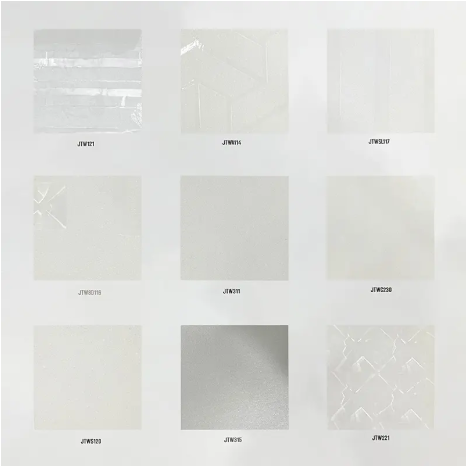Factors Influencing Window Film Longevity
Quality of Film Material
How long window films will last really depends on what kind of materials were used in their construction. Better quality films built with tough polymer bases generally stick around for much longer periods since these materials stand up better against damaging UV radiation and excessive heat exposure. Most reputable manufacturers back their products with warranty periods that hint at how long customers might expect them to function properly, usually somewhere between five and fifteen years based on material grade. There's also something interesting about light transmission levels worth noting here. Films allowing more visible light through (what we call higher VLT ratings) actually experience less wear over time because there's simply less strain caused by temperature changes expanding and contracting the material throughout the day.
Installation Method and Expertise
How window films get installed matters a lot for how long they last. When done right by professionals, these films can stick around for years without problems. But when someone cuts corners during installation, the film tends to start peeling or bubbling much sooner than expected. Good installers follow strict guidelines from manufacturers about things like surface preparation and application temperatures. These little details really make a difference in both how well the film works and how long it stays looking good. According to industry data, around 70% of all warranty issues come down to poor installation practices instead of defects in the actual product itself.
Environmental Exposure Factors
Window films face all sorts of weather conditions out there, and this really affects how long they last. When temps get extreme hot or cold, plus when humidity hangs around too much, the film just breaks down faster than expected. Places where air quality is poor also see problems sooner because pollutants actually eat away at the material over time. Knowing what kind of environment the windows sit in makes all the difference when picking a film type and figuring out when maintenance will be needed down the road.
Maintenance Practices
Keeping window films in good condition makes all the difference when it comes to how long they'll last on a building. When someone takes time for routine upkeep like cleaning properly and handling them with care, these films tend to stick around much longer than expected. No need for strong chemical cleaners or scratchy scrubbing pads either since those things just ruin the surface over time. Some research shows that films getting regular attention actually stay intact about 10 to 15 percent longer compared to ones left alone. That means checking them from time to time and using soft cloths with mild soap solutions works wonders for preserving both appearance and functionality across seasons.
Average Lifespan Expectations by Film Type
Solar Control Films (10-15 Years)
Solar control films work by bouncing back most of the sun's heat, which helps keep buildings cooler while lasting anywhere from 10 to 15 years typically. What makes these films so good at saving energy is their special coatings that block UV rays without letting too much light through. Over time though, things like constant sunlight and weather wear down the film's performance, so most people find they need to replace them after around a decade or so if installed properly. The companies that make these products always stress how important it is to clean them regularly with just water and mild soap instead of those strong chemical cleaners everyone seems to reach for automatically. When done right, quality solar films definitely pay off in the long run since they last longer than expected and create much better indoor comfort during hot summer months.
Decorative/Privacy Films (5-10 Years)
Decorative and privacy window films definitely look great but tend not to last as long as people might hope, usually between 5 and 10 years before they start showing wear. Why? Well, these types of films just aren't built as robustly as solar control options when it comes to materials. Sunlight exposure matters a lot too, plus whatever weather beats down on them day after day. How well someone takes care of them makes all the difference in how long they stick around. Most professionals will tell anyone serious about keeping those films looking good that replacing them according to manufacturer suggestions is pretty much essential. Keep an eye on what's happening outside the window and stick to basic cleaning practices, and chances are those decorative films will hang in there longer than expected.
Safety/Security Films (15+ Years)
Safety and security films can take quite a beating while still holding up against sunlight damage too, which makes these coatings pretty tough compared to other options on the market today. Most quality installations last around 15 years or so if done right and kept clean regularly. We've seen plenty of real world cases where professional installers put these films on buildings and they outlast regular window tint by a mile, keeping windows secure even after years of exposure. People who invest in good safety film usually find it pays for itself over time since it keeps working hard to protect against break-ins and accidents long past what most people would expect from cheaper alternatives.
Recognizing When to Replace Window Film
Visible Fading or Discoloration
Fading or discoloration on window film means it probably needs to go. Sunlight plus all sorts of weather conditions eventually break down the material over time. The film just doesn't work as well anymore once it starts changing colors significantly from what it originally looked like. Some studies point out that this kind of fading often begins showing up after just a couple of years, especially for those windows getting hit by direct sunlight most of the day. Getting new film installed before things get too bad makes sense both practically and aesthetically speaking. Nobody wants their windows looking old and worn when they could look fresh again with a simple replacement.
Bubbling, Peeling, or Cracking
When window film starts to bubble, peel, or crack, that's usually a clear sign something has gone wrong. These problems typically happen because the film wasn't installed properly or due to really bad weather conditions over time. What this means is the film isn't sticking anymore, so it needs replacing fast before the glass underneath gets damaged too. Most professionals will tell anyone who listens that fixing these issues right away matters a lot since letting them sit just makes everything worse. For folks living in areas with tough weather patterns, getting the installation done right initially goes a long way toward preventing these headaches later on. Regular inspections also help catch small problems before they turn into bigger ones down the road.
Reduced Performance Metrics
Window film starts losing its effectiveness over time, usually showing signs like poor heat control or less UV protection. People should check how well their window film is working on a regular basis to spot when it begins performing below expectations. Research shows that older films tend to let in more heat and UV rays, especially if they've been sitting in direct sunlight for years. For instance, many homeowners notice their rooms getting hotter during summer months once the film has degraded. Keeping an eye on these changes matters because replacing old window film at the right time maintains comfort levels inside buildings while also helping cut down on cooling costs. A simple visual inspection every few years can make all the difference in maintaining both functionality and savings potential from window films.
Essential Window Film Maintenance Techniques
Proper Cleaning Methods
Keeping window films in good condition really comes down to something simple: just a mild soap mixed with water works wonders. The solution is gentle on the film material and won't cause any damage over time, so it lasts much longer than other methods might. Most people find that a soft cloth or sponge does the trick best because anything too rough will actually scratch the film surface, making it look worse and work less well. Getting into a routine of regular cleaning makes all the difference. Left alone, dirt and grime tend to stick around and build up, which speeds up how fast the film starts to break down. After a while, this means the film doesn't perform as intended anymore.
Avoiding Abrasive Materials
Steering clear of scratchy stuff like steel wool or rough scrubbing pads makes all the difference when it comes to keeping window films looking good. Studies have shown time and again that aggressive cleaning techniques lead to faster wear and tear on these films, with tiny scratches ruining both how they look and how well they work. Going the gentle route with soft cloths or sponges does wonders for preserving that nice appearance while making sure the film lasts longer too. Most people find their window films stay effective much longer when cleaned properly instead of getting damaged by harsh materials.
Protective UV Treatments
Adding UV protection to window films really makes a difference in how long they last before needing replacement. These special coatings act as a barrier against those pesky UV rays that cause films to fade and lose effectiveness after some time outside. Most professionals suggest getting the treatment reapplied roughly every two years or so just to keep things working properly. The good news is that when maintained correctly, these films stay clear looking much longer while also doing a better job at keeping heat out of buildings during summer months. For anyone serious about saving money on replacements down the road, investing in regular UV maintenance definitely pays off in the long run.
Professional Installation vs. DIY Impact on Durability
Benefits of Certified Installers
Choosing certified installers brings real benefits that help window films last much longer than average. These pros know all the tricks of the trade from years on the job, making sure the film goes on straight without wrinkles or bubbles that shorten life spans dramatically. Most major brands actually back their products with longer guarantees when installed by these qualified folks, so it's basically free insurance against premature replacement costs. And let's face it nobody wants those annoying air pockets trapped between layers or edges that curl up over time because improper application just looks terrible and fails faster.
FAQ Section
What factors affect the longevity of window films?
The quality of the film material, installation method and expertise, environmental exposure factors, and maintenance practices significantly impact the longevity of window films.
How does professional installation impact window film duration?
Professional installation enhances the film's lifespan and effectiveness by adhering to industry standards, reducing the likelihood of errors such as misalignments and air bubble formations.
What is the average lifespan of different types of window films?
Solar control films typically last 10-15 years, decorative/privacy films last 5-10 years, and safety/security films last over 15 years with proper installation and maintenance.
How can I maintain my window film to maximize its lifespan?
Regular cleaning with mild solutions, avoiding abrasive materials, and applying protective UV treatments can help maintain window films effectively and maximize their lifespan.
What are signs that window film needs replacement?
Signs indicating the need for replacement include visible fading or discoloration, bubbling, peeling, or cracking, and reduced performance in heat control or UV protection.

